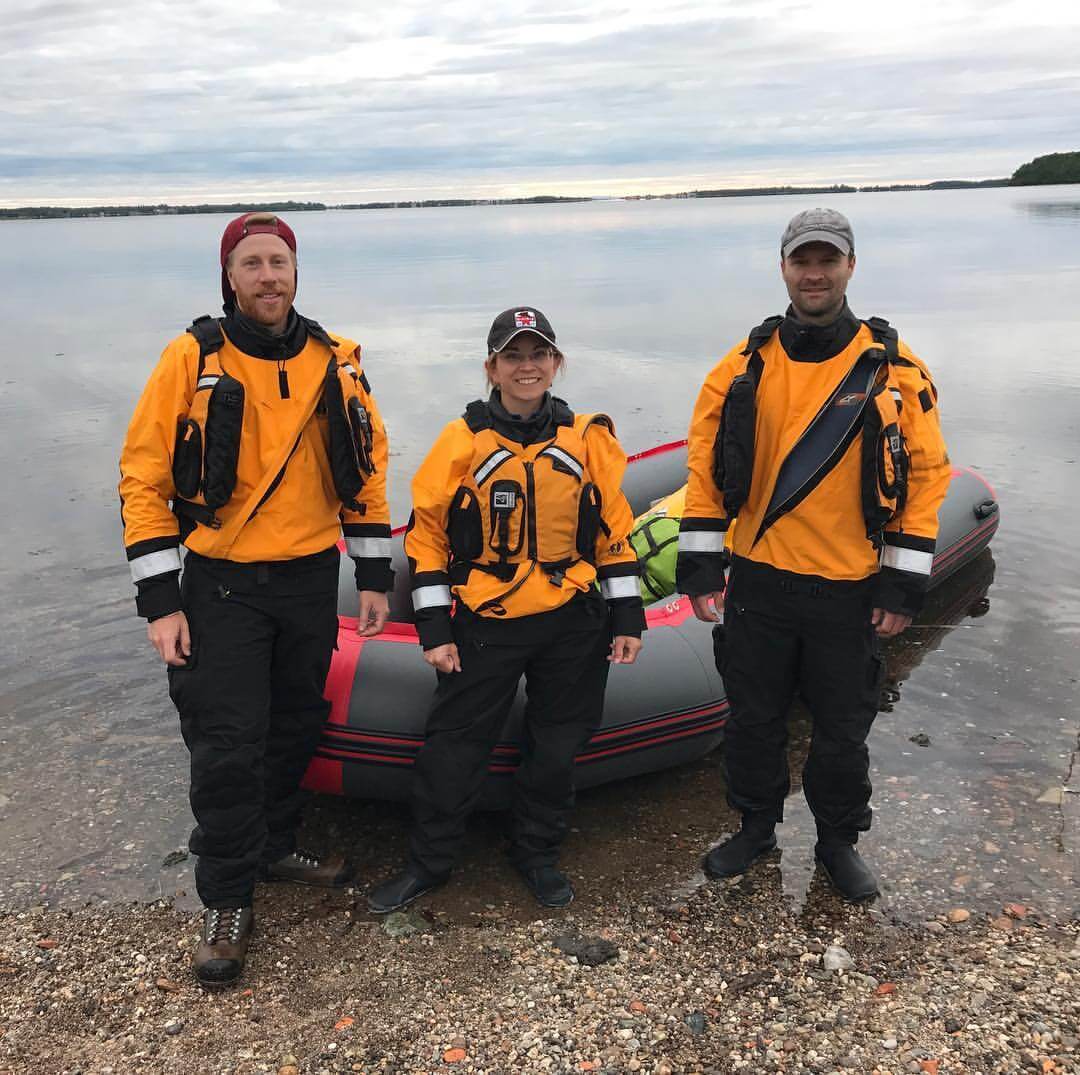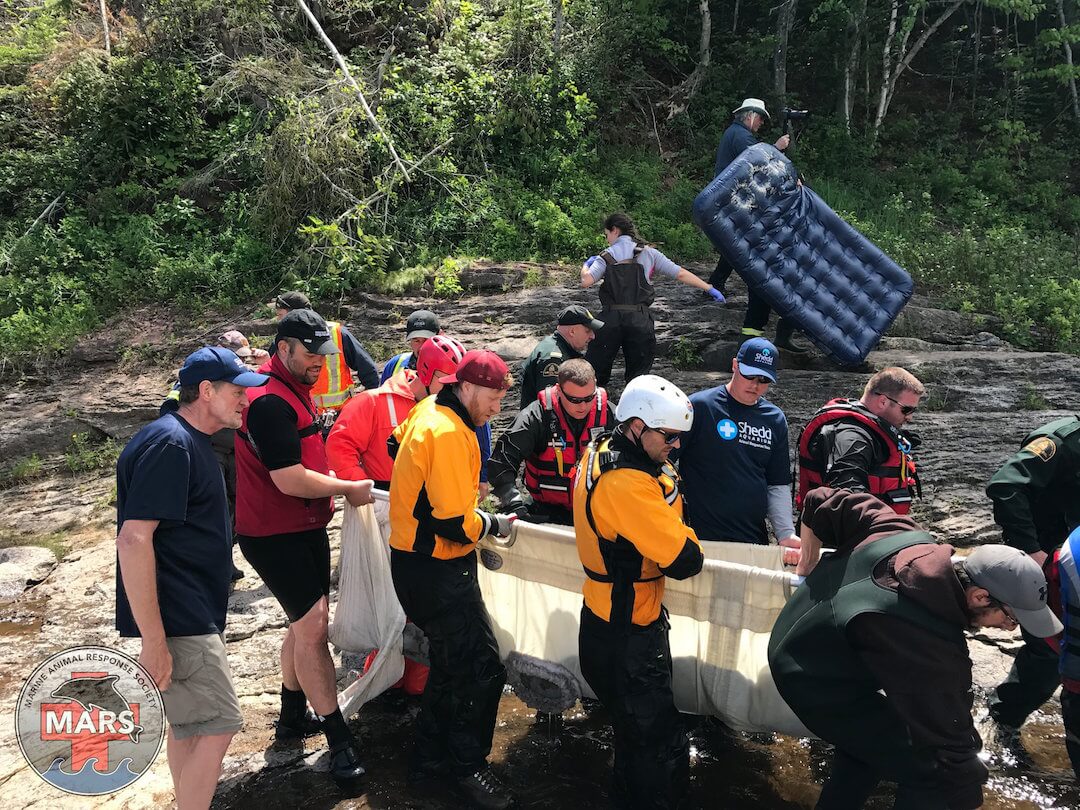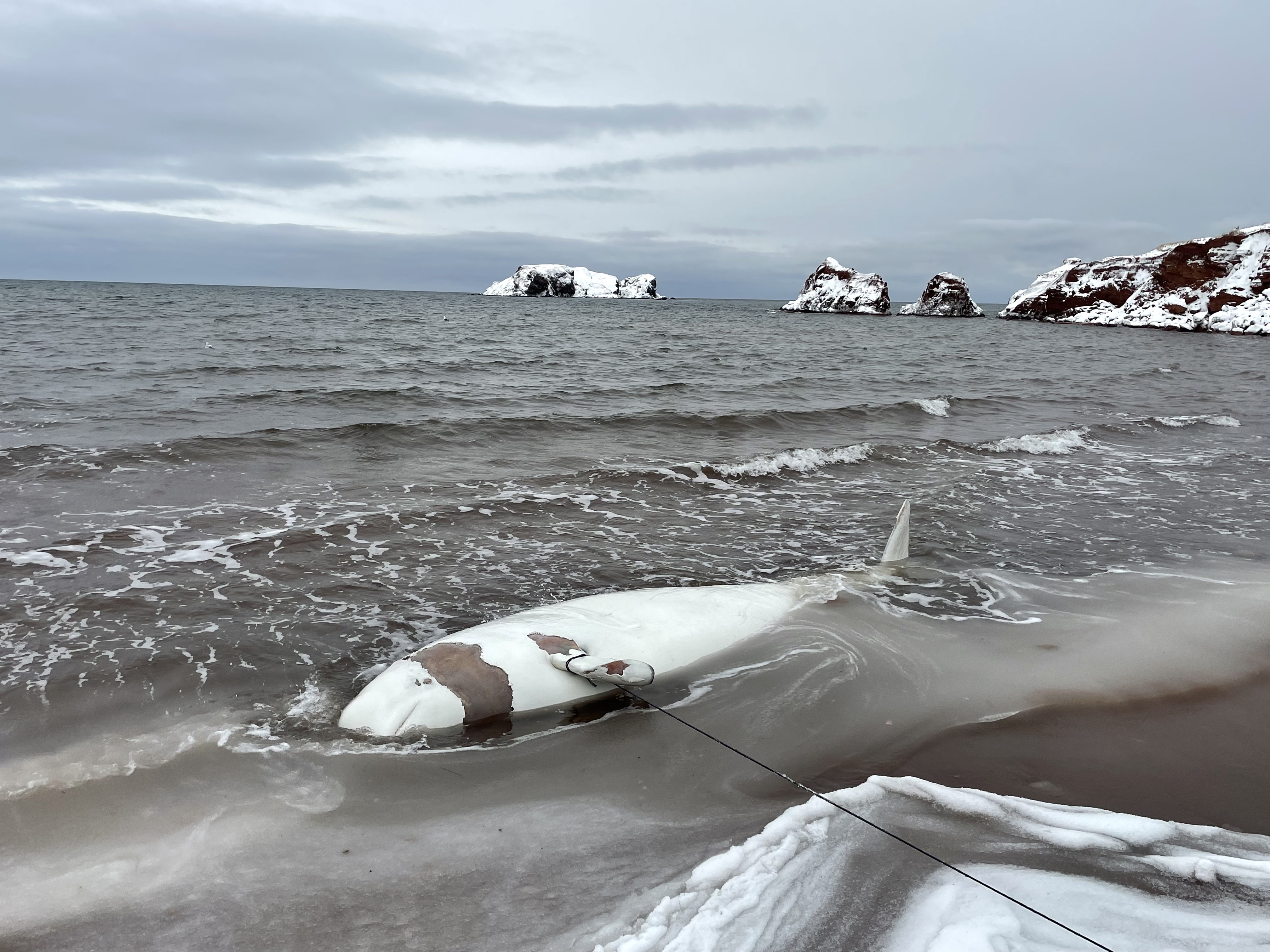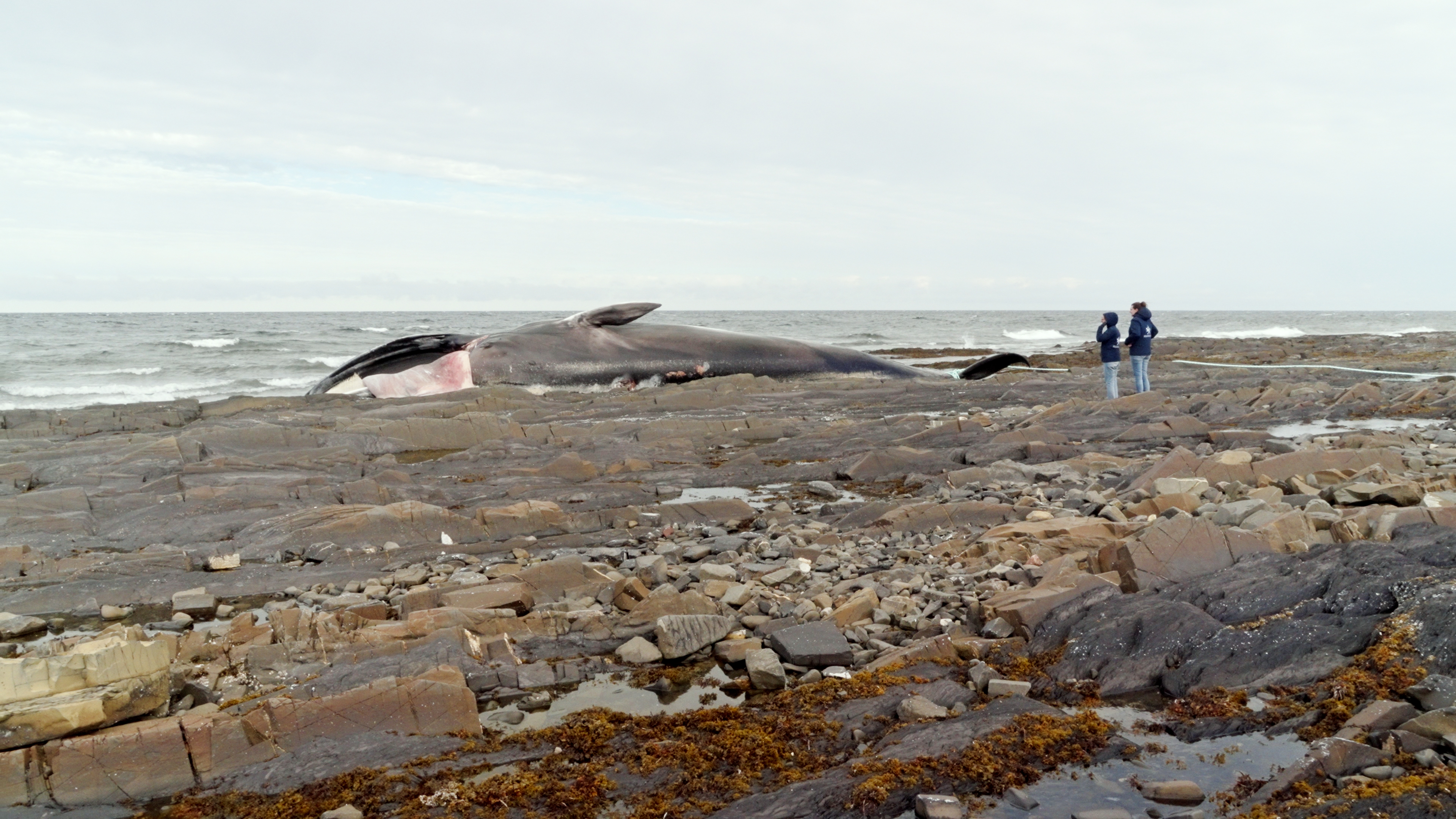Marine Animal Response Society (MARS)
Nova Scotia, Canada
No matter where you are on the planet, marine mammals have allies. Through a series of texts, discover the colossal work being carried out by enthusiasts to help vulnerable marine mammals. For this first text, we interviewed our neighbours in Nova Scotia.
The Marine Animal Response Society (MARS) is a small organization with a core team of four individuals. Of course, four people are not enough to answer the 400 to 600 calls received every year for all the Maritimes provinces. MARS works with the help of 60 to 100 volunteers who are the eyes of the organization and who assist field teams when they need an extra hand.
Every year, nearly 200 cases are handled. Among them, the majority are for young seals being harassed during the pupping season, but also a relatively high volume of carcasses and animals found stranded alive on the beaches, which probably occurs more frequently here than anywhere else in the country, according to Tonya Wimmer, executive director of MARS. Whales Online spoke with her.
What has been the most striking case in the history of MARS?
T.W.: The right whale incidents in the summer of 2017 were unprecedented. With a few exceptions, I don’t think there are many organizations prepared for events of this magnitude. This was undoubtedly the greatest challenge that MARS ever had to face, given the number of animals, the fact that the carcasses were adrift, and the number of people involved.
We also had mass strandings, one of the largest of which consisted of between 16 to 20 live pilot whales. The Nepisiguit River beluga was also a difficult case and one where we received help from our partners from the Quebec Marine Mammal Emergency Response Network.
As each case is unique, there are no off-the-shelf solutions. There are often unforeseen events or factors that complicate the situation. This is the nature of our work, and we also need to take a step back not only to assess the situation, but also to make sure that everyone – animals and humans alike – is safe.
What are the strengths of MARS?
T.W.: I think it’s essentially the passion and dedication of the individuals involved in the organization. In addition, much of what we know about how animals respond when distressed comes from our relationships with partners in the national and international communities, but also at the local level. People know who we are and how to reach us, they want to help and learn more. This connection to the community is crucial to everything we do.
On the other hand, what areas need to be developed?
T.W.: MARS is a link in a larger chain of networks, with peers and colleagues in Quebec, Newfoundland and British Columbia. We need to develop our interactions because these organizations have acquired different skills, some are more specialized, others more general, but by working together, we can be in a position to respond to any type of incident.
Despite the challenges, we maintain an emergency line, for the safety of both the people who call us and the animals. If we are not on the premises, witnesses will act on their own, and sometimes in the wrong way. The hotline is more than just taking a message over the phone.
What is your organization's contribution to research?
T.W.: When I founded MARS and more people joined us, it was a matter of answering scientific questions, namely how to better understand these animals and protect them so that future generations can continue to enjoy them. That’s really what we do!
One of the things I’m most grateful for is that we have access to incredible veterinarians. Additionally, we receive a lot of requests from scientists to take samples from the carcasses that we find. There is so much that can be learned from a beached carcass other than just the reasons for its mortality: the effects of human activity, the spatial distribution of the species, the state of health of the individual, contaminant levels, etc. We have developed some basics in necropsy and in acquiring and transferring samples to these collaborators, because unlike us, they have access to the laboratories and technologies necessary for the analyses.
The Marine Animal Response Society can be reached at 1-866-567-6277 for cases of dead or vulnerable marine mammals in the Maritimes provinces. Find out more about this organization and their awareness and education programs on their website or check out their social media pages: Facebook, Instagram and YouTube.








